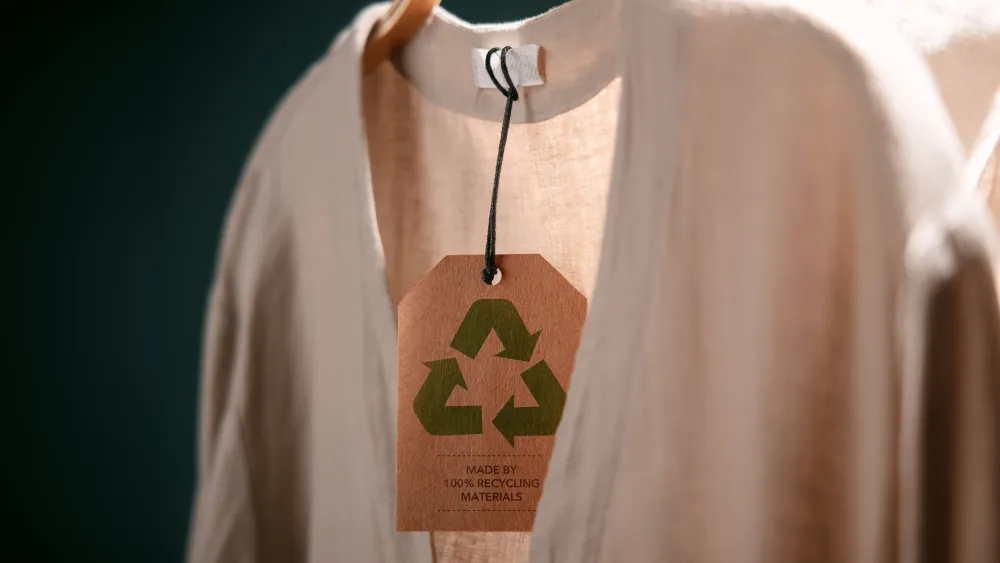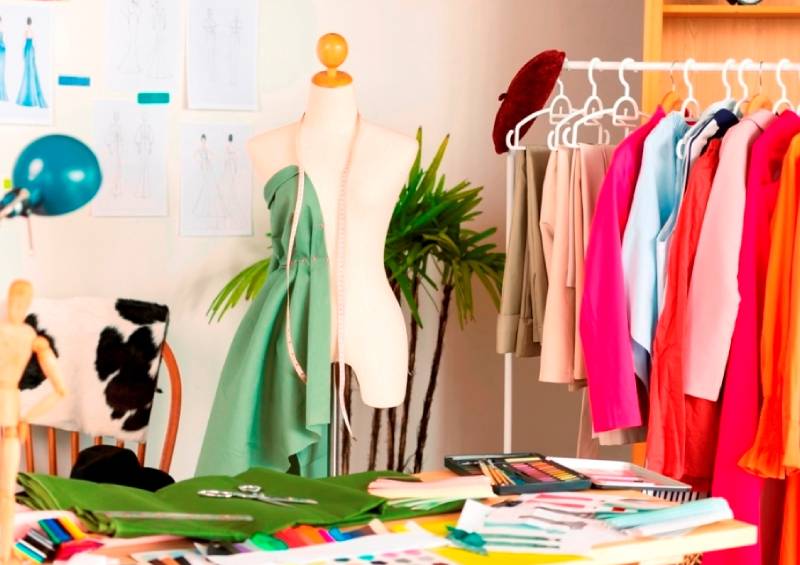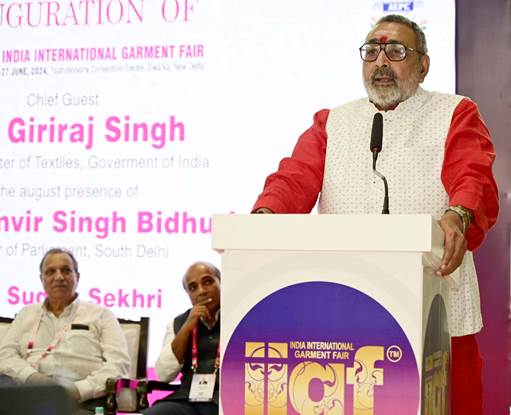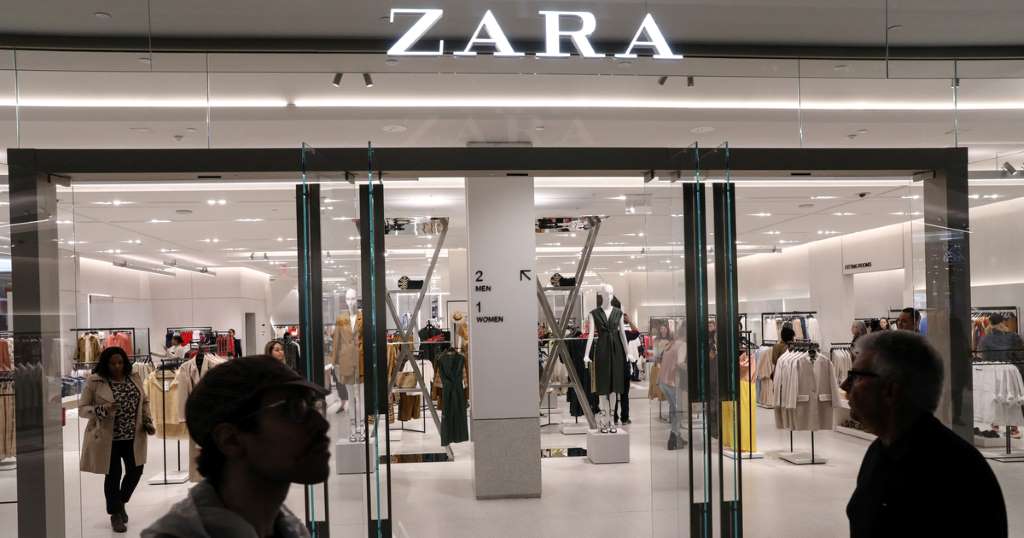FW
Archroma, a leading player in sustainable specialty chemicals, has garnered significant recognition at the Just Style 2024 Excellence Awards. The company secured dual Innovation Excellence accolades for its pioneering Super Systems+ solutions and Avicuero leather tanning process, alongside a Social Excellence award for community engagement near its Baroda, India plant.
The Innovation awards highlight Archroma's commitment to advancing sustainability within the textile industry. Super Systems+ offers a comprehensive suite of solutions addressing critical challenges like water consumption and chemical management. It not only enhances process efficiency and product durability but also anticipates future regulatory requirements, underscoring Archroma's proactive approach to sustainability.
Avicuero, developed in partnership with Leather, represents a breakthrough in chrome-free leather tanning, reducing processing times, salt usage, and pollution effluent discharge while cutting carbon dioxide emissions by up to 23 per cent. This innovation underscores Archroma's drive towards eco-friendly manufacturing practices without compromising quality.
Beyond technological innovations, Archroma's Social Excellence award recognizes its holistic community initiatives near Baroda. From educational scholarships and agricultural empowerment to sustainable energy projects like the Household Biogas Plant, Archroma exemplifies corporate responsibility and positive socio-economic impact.
The Just Style Excellence Awards celebrate Archroma's transformative contributions to the textile industry, reinforcing its role as a global leader in sustainable innovation and community engagement.
Inditex, the powerhouse behind Zara and other renowned brands like Berksha and Massimo Dutti, has aligned with Canopy's Pack4Good initiative, signaling a transformative shift towards sustainable practices in fashion packaging. This collaboration extends Inditex’s decade-long commitment under CanopyStyle to exclude Ancient and Endangered Forests from its textiles, now encompassing stringent measures to safeguard these forests from paper packaging production.
The fashion sector heavily relies on paper packaging for various purposes such as shipping boxes, e-commerce envelopes, and paper bags, making sustainability efforts crucial in combating climate change and biodiversity loss. Inditex’s pledge underscores its proactive stance in adopting recycled pulp, FSC-certified materials, and cutting-edge Next Generation Solutions to reduce its ecological footprint.
Nicole Rycroft, Executive Director of Canopy, praised Inditex’s leadership, emphasizing the company’s role in encouraging suppliers to prioritize forest conservation and explore alternative materials. Javier Losada, Inditex’s Chief Sustainability Officer, highlighted ongoing initiatives like the Green to Pack program, which has substantially slashed paper usage and operational costs.
As part of Pack4Good, Inditex aims to further diminish packaging volumes through reusable boxes and increase the adoption of recycled paper content. Their commitment extends to developing Next Gen materials, potentially integrating agricultural by-products like cereal straws and hemp into paper production.
With Inditex’s inclusion, Pack4Good now encompasses 449 brands with a collective revenue exceeding 287.4 billion USD annually, amplifying efforts towards a more sustainable future in global fashion.
Union Minister for Textiles, Giriraj Singh, will inaugurate the 71st India International Garment Fair (IIGF) on June 25, 2024, at Yashobhoomi Convention Centre, New Delhi.
Organized by the International Garment Fair Association (IGFA) with the Apparel Export Promotion Council (AEPC), the fair highlights the collaboration of key industry bodies, including the Clothing Manufacturers Association of India (CMAI), Garment Exporters & Manufacturers Association (GEMA), and Garment Exporters Association of Rajasthan (GEAR).
AEPC and IGFA Chairman, SudhirSekhri, highlighted the fair's importance, noting its role in reversing the decline in apparel exports and achieving a 10 percent growth in May 2024. He mentioned that the surge in global demand makes this fair crucial for harnessing new opportunities. The event will also be Minister Singh’s first close engagement with the industry, offering a platform for interaction with global buyers.
Secretary General of AEPC, Mithileshwar Thakur, stated that IIGF aims to offer a marketing platform for micro, small, and medium exporters, showcasing the latest trends and diversity in Indian garments and accessories.
The fair, spanning 18,000 square meters, will feature over 350 exhibitors presenting a variety of products including womenswear, menswear, kidswear, knitwear, accessories, and sustainable garments. Participation from buyers across 50 countries is confirmed, targeting the Spring/Summer 2025 season.
The 71st IIGF will also host knowledge sessions on June 25-26, focusing on global trade challenges, manufacturing excellence, and sustainable fashion. Additionally, fashion shows will be held twice daily from June 25-27, highlighting the top collections on display.
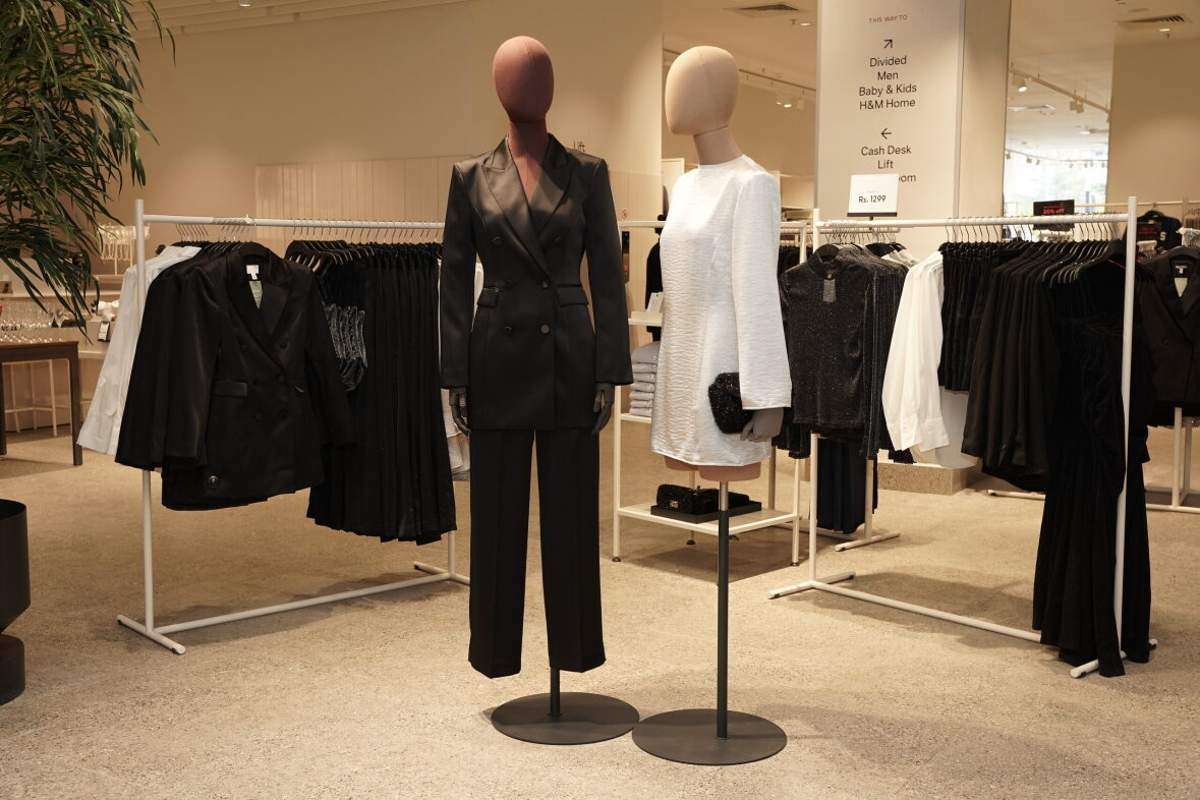
The fashion industry is in a whirlwind of consolidation. From luxury giants to high-street favorites, brands are merging, acquiring, and forming strategic partnerships at an unprecedented rate. This trend reflects a dynamic shift in the fashion landscape, driven by a numerous factors.
Mergers and acquisitions changing business
In August 2023, Tapestry, Inc. (owner of Coach, Kate Spade, and Stuart Weitzman) acquired Capri Holdings (Versace, Jimmy Choo, and Michael Kors) for a staggering $8.5 billion. This deal, the biggest in fashion for 2023, aims to create a powerhouse with a diversified brand portfolio and global reach, leveraging Tapestry's data analytics and direct-to-consumer expertise.
On similar lines G-III Apparel Group, known for brands like Calvin Klein and Tommy Hilfiger, acquired a significant stake in AWWG, owner of Champion and Starter. This move strengthens G-III's position in the booming activewear market.
There are several reasons for this shift.
Evolving consumer landscape: Today's shoppers crave convenience, omnichannel experiences, and sustainable practices. Mergers allow brands to combine resources, cater to diverse customer segments, and build robust online presences.
Digital transformation: The rise of e-commerce necessitates a strong digital infrastructure. Acquisitions like Farfetch's strategic partnership with Richemont (owner of Cartier) in 2023 bolster online capabilities and tap into new markets.
Growing competition: Fast fashion giants like Shein's IPO filing in 2023 and their acquisition of Missguided highlight the pressure to stay competitive. Mergers create economies of scale, allowing brands to compete more effectively.
Indeed there are several strategic benefits of mergers economies of scale is the foremost. Merged entities can leverage combined resources, leading to cost reductions in production, marketing, and logistics. It also helps in brand portfolio diversification as acquiring complementary brands allows companies to tap into new customer segments and product categories. And sharing knowledge and expertise across brands can foster innovation and accelerate product development. By combining resources and expertise, brands can strengthen their online presence and compete more effectively in the digital marketplace.
The ongoing M&A activity in the fashion industry signifies a period of significant transformation. As brands consolidate and seek strategic partnerships, the future of fashion promises a more streamlined and competitive landscape, with a focus on digital innovation, sustainability, and catering to diverse consumer preferences.
Activewear brand owned by Gap Inc, Athleta, has appointed Tania Flynn as its new Head - Design. Flynn joins Athleta from Nike, where she served as VP and creative director of apparel design, overseeing product design across women's, men's, kids', and accessories segments. During her 19-year tenure at Nike, Flynn also contributed significantly to the international sport, footwear, and novelty departments, and was instrumental in fostering external collaborations.
Flynn's appointment comes at a critical time for Athleta, which has been struggling to compete in the activewear market. In 2023, Athleta experienced a 12 percent decline in same-store sales, with annual net sales dropping from $1.48 billion in 2022 to $1.36 billion.
Under the leadership of Chris Blakeslee, CEO who joined Athleta from Alo Yoga in July 2023, the brand is focusing on enhancing product and marketing strategies. Early signs indicate a recovery, with a 5 per cent Y-o-Y increase in comparable sales reported for the first quarter of 2024, ending on May 4, 2024. This period also marked the first time in several years that all of Gap Inc.’s brands, including Old Navy and Banana Republic, achieved positive comparable sales growth.
Flynn will report directly to Blakeslee, and her appointment underscores Athleta’s commitment to revitalising the brand and solidifying its position as a leader in performance and design innovation. According to Blakeslee, Flynn’s extensive experience in performance, lifestyle, and partnerships will enhance Athleta’s ability to deliver exceptional products designed specifically for women, by women.
With its sales declining and competition rising, Forever 21 is urging landlords for a break in rent.
With over 380 stores in the US, the brand has asked some landlords to cut its rent by as much as 50 per cent. The company is yet to hire advisors and isn’t considering a second bankruptcy protection filing
Facing a range of issues, Forever 21 operates in the increasingly saturated fast-fashion market. The retailer filed for bankruptcy protection in 2019 and was later bought by a consortium including a brand management company Authentic Brands Group and landlords Simon Property Group and Brookfield Property Partners.
When the company sought bankruptcy protection, it had more than 800 locations globally. However, the massive store count weighed on its balance sheet, making it impossible for the brand to invest in its supply chain and respond to changing trends rapidly. Even closing hundreds of stores did not resolve its issues.
Forever 21′s financial position has also hurt the performance of its operator Sparc Group — the joint venture that includes Authentic, Simon and as of last summer, Chinese-linked fast-fashion behemoth Shein. Sparc runs Forever 21′s operations, as well as several other formerly bankrupt retailers, including Aeropostale, Brooks Brothers and Lucky Brand.
A Cambodian transportation firm headquartered in Phnom Penh, CID Logistic Cois collaborating with Shanghai-based Shanghai Shunkai International Freight & Forwarding Co to establish a textile and dyeing factory in Cambodia.
In a delegation hosted by both the companies in Phnom Penh, LorTithChansopheak, Advisor to the Council for the Development of Cambodia (CDC), emphasisedon the Royal Government of Cambodia's (RGC) efforts to attract both international and domestic investors by offering favorable and incentivised investment regimes, particularly in priority sectors outlined in the 'Law on Investment of the Kingdom of Cambodia.'
The delegation’s said, its primary mission is to explore investment opportunitiesin Cambodia, specifically to establish textile and fabric dyeing factories in the country. This would help boost to national economic growth significantly besides attracting further foreign investments into the garment sector.
The delegation also indicated its intention to expand their investments in Cambodia, thereby strengthening bilateral relations between Cambodia and China. LorVichet, Vice President, Cambodia Chinese Chamber of Commerce (CCCA), citied tax policies, labor productivity and electricity costs as three major concerns that are crucial for foreign investors to enhance trade and export competitiveness regionally and globally.
As a part of its Fall/Winter 2025-26, Turkish denim mill Bossa has launched a new denim collection made from fabrics in the new collection titled, Endless Blue. The fabrics in this collection have been made from the regenerated virgin cellulose fiber, Saxcell.
Derived from chemical recycled cotton waste, SaXcell is produced by sorting domestic cotton textile waste into a well-defined waste stream. Non-textile components like zippers and buttons are removed as the waste is grinded into a dry mixture of fibers with different lengths. The dry mixture is chemically decolored, followed by a wet spinning process.
The fiber can be cut to specified lengths, spun into yarns and woven or knitted into fabrics. Coloring can take place at the fiber, yarn or fabric stages.
From hemp to colored cotton, Bossa actively introduces new fibers to their denim fabrics. TheSaxcell blended denim fiber enables the brand to create fabrics that not only meet high quality standards but also priortise environmental conserveation, says, MugeTunceren, Product Development Manager, Bossa
The Endless Blue collection includes two fabrics: the comfort stretch Organic Cypress Savetrue with 34 per cent SaXcelllyocell; and the power stretch FX MetacellFreshblue with 18 per cent SaXcelllyocell.
Initially a project by a team of researchers from Saxion University of Applied Science in 2011, SaXcell was spun off as a startup in 2015. The company has been scaling its technology since through partnerships with Rieter, a supplier of systems for short-staple fiber spinning, and Birla Cellulose, a producer of man-made cellulosic fiber.
For the fifth consecutive time, Bestseller brands, Jack & Jones and Vero Moda have collaborated with the Olympic and Paralympic athletes to design and deliver the official collection for the Danish athletes at the Paris 2024 Games. For the opening ceremonies, Danish athletes will wear red and white hues reminiscent of the Danish flag as they move through the heart of Paris.
The collection for the female athletes is been designed by Vero Moda while the male athletes’ collection will be designed by Jack & Jones. Paralympic gold medalist taekwondo fighter Lisa Kjær, who provided input during the creation of the collection, highlights the complementing beige and blue colors used in the collection alongside the traditional red and white.
The collection includes everything from sweatsuits and suits to bucket hats and sunglasses. Bettina Holst, Buying & Design Director, Vero Moda, explains, the design of the collection combines the red of the Danish flag and the blue of the sea with Parisian elements to honor the host city. It incorporates a touch a fashion with a Parisian influence, evolving from a casual collection in Beijing 2008 to a sports and fashion collection for Paris 2024, she notes. The collection meets the athletes' specific conditions and requirements, adds Anders Gam, Brand Director.
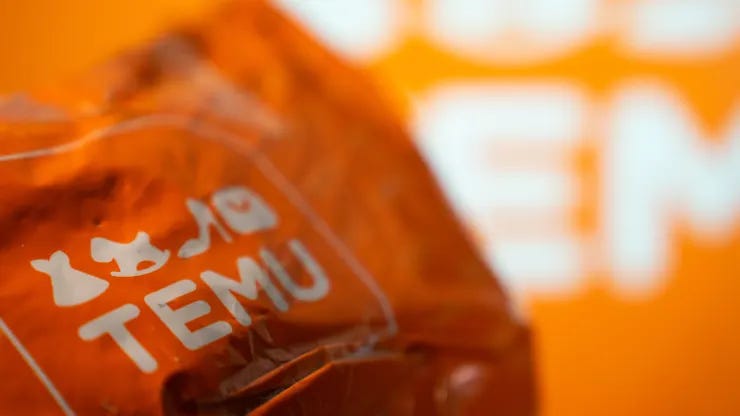
Temu, the Chinese online retailer owned by PDD Holdings, has exploded in popularity in recent years, offering a vast array of products at rock-bottom prices. However, this bargain basement approach has raised a multitude of concerns, with accusations ranging from counterfeit goods and safety hazards to unethical labor practices and data privacy issues.
Quality and copyright Infringement
A major concern is the quality and authenticity of Temu's products. While there haven't been confirmed instances of counterfeits, Temu's parent company, PDD Holdings, has faced accusations of selling fakes on its Pinduoduo platform. The US-China Economic and Security Review Commission raised concerns about copyright infringement, suggesting Temu might sell inferior products that don't match established brands. Investigations by Wired further support this, indicating Temu's focus on rock-bottom prices could compromise quality. Additionally, designers have accused Temu of stealing their work, with reported difficulty in getting infringing products removed.
Unreliable delivery time and missing items
Temu boasts of free shipping on most orders, but the wait can be lengthy as items are shipped directly from China. Customer complaints abound online, citing inconsistent delivery times, missing items, and damaged products. The Better Business Bureau (BBB) and the Federal Trade Commission (FTC) have documented numerous complaints regarding delayed or undelivered packages, with some customers reporting damaged or incomplete orders.
Potentially misleading influencer marketing
Temu's social media presence is extensive, with a flood of positive reviews on platforms like TikTok. However, the legitimacy of these testimonials is questionable. Temu offers an influencer program, where positive reviews and product placements might not be genuine but rather paid sponsorships.
Forced labor concerns
Serious allegations cloud Temu's supply chain. The US government has warned of a ‘high risk’ of forced labor being used in Temu's products, particularly involving China's Uyghur population. Temu relies heavily on third-party sellers, making it difficult to guarantee ethical production practices. The House Select Committee on the Chinese Communist Party criticized Temu's lack of transparency regarding its supply chain and potential violations of the Uyghur Forced Labor Prevention Act. Temu's parent company, PDD Holdings, has been slammed for allegedly forcing employees to work long hours in poor conditions. A China Labor Watch study found employees working 380 hours a month, exceeding safe working limits.
Safety concerns
Temu acts as a marketplace, similar to Amazon, and doesn't directly manufacture products. This raises concerns about safety regulations. Investigations by Which? in the UK revealed electrical products failing safety standards, posing a risk to children. Similar issues were found with toys by the Toys Industries of Europe, with choking hazards and toxic chemicals exceeding legal limits. Temu claims to take safety seriously but these reports raise doubts.
Data privacy issues
Temu, like many Chinese-owned platforms, raises data privacy concerns. While no concrete evidence exists of Temu mishandling user data, its association with PDD Holdings is unsettling. PDD Holdings' Pinduoduo app was removed from the Google Play Store for installing malware and collecting user data without permission.
However, Temu maintains it prioritizes safety and removes potentially hazardous products. It also emphasizes its efforts to combat scams and advises users to download the app only from official stores. The company has not directly addressed the allegations of forced labor or provided details on its supply chain transparency measures.
Temu's ultra-low prices are undeniably attractive, but significant concerns linger regarding product quality, safety, labor practices, and data privacy. While Temu denies wrongdoing, the weight of evidence from various sources paints a concerning picture. Before diving into the world of Temu deals, careful consideration of these issues is crucial for informed shopping decisions.

